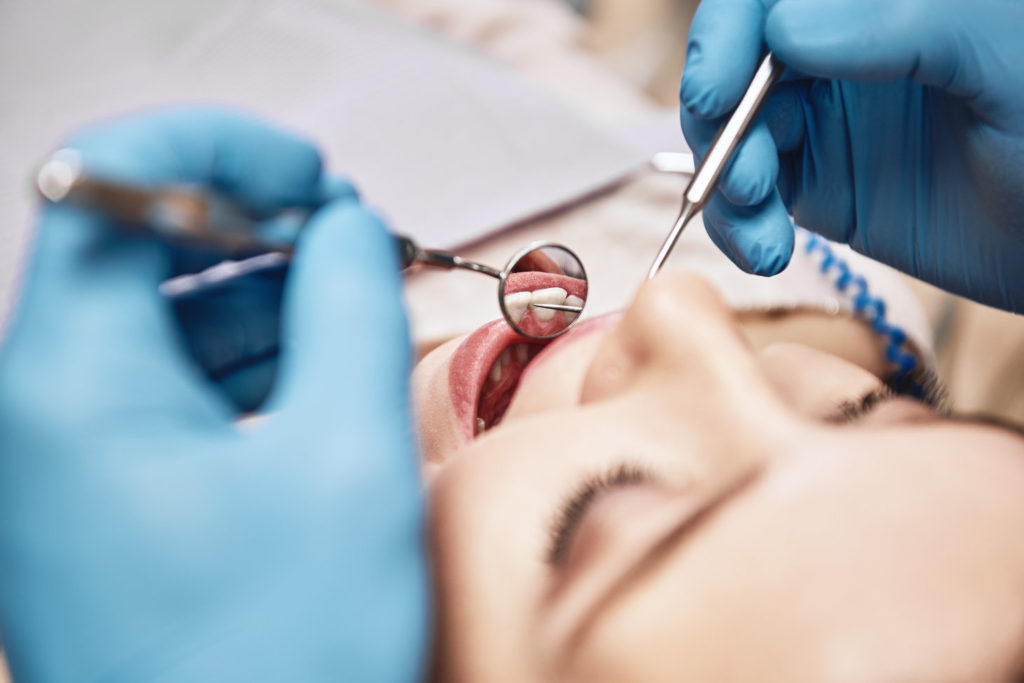Your Dentist Can Detect More Than Just Cavities
May 14, 2020

When you go to your dentist for a preventive care visit, you expect them to check your mouth and tell you about the health of your teeth and gums. But did you know that they can tell you about things that might be happening in other parts of your body? The Academy of General Dentistry has found that 90% of diseases generate issues inside the oral cavity. Your dentist can inform you about these signs so that you can seek treatment with your doctor. Read on to find out about the problems your dentist can detect during your next checkup appointment.
Anemia
Healthy gums have a pink color to them. If they become pale, or your tongue begins to swell, it’s a sign that your blood can’t carry enough oxygen to your cells due to a lack of hemoglobin.
GERD
Gastroesophageal reflux disease occurs when stomach acid moves into the esophagus. As it moves further up, it can even damage your mouth. Eroded enamel, as well as canker sores and bad breath are all clear warning signs that your dentist can notice.
Osteoporosis
When people talk about osteoporosis, they usually focus on the bones in your legs and back, but your jawbone is also subject to becoming weak as a result of this disease. Loose teeth and a receding gum line are immediate signs to your dentist that this bone may be becoming weaker.
Diabetes
Diabetes can have a significant impact on your mouth. One of the first signs your dentist will notice is your breath smelling like fruit. The disease also makes it harder for your body to fight infections and heal, so bleeding gums and loose teeth can occur too.
HIV
Patients with undiagnosed HIV are going to find that their mouths much more vulnerable to infections. Oral thrush is one of these opportunistic diseases. It leaves your tongue covered in a white, pasty substance that will be immediately visible to your dentist. Other signs include red lesions, dry mouth, warts, and cold sores.
Anxiety
Stress has the power to damage your mouth. When you don’t have healthy ways of managing it during the day, it can manifest in the form of clenching and grinding your teeth at night. Signs of this issue that your dentist might see include teeth with worn down edges or clusters of canker sores.
Your dentist cares about the health of your entire body. If they believe your mouth is presenting signs of problems elsewhere, they will recommend that you talk to your doctor for more information and treatment options.
About the Author
Dr. Ukti Phadnis earned her dental degree from the University of Connecticut School of Dental Medicine. During every routine visit, she takes the time to thoroughly inspect her patients’ mouths so that she can detect problems before they become major issues. If you are looking for a regular dentist, you can reach out to her through her website or at 860-400-3007.
No Comments
No comments yet.
RSS feed for comments on this post.
Sorry, the comment form is closed at this time.


